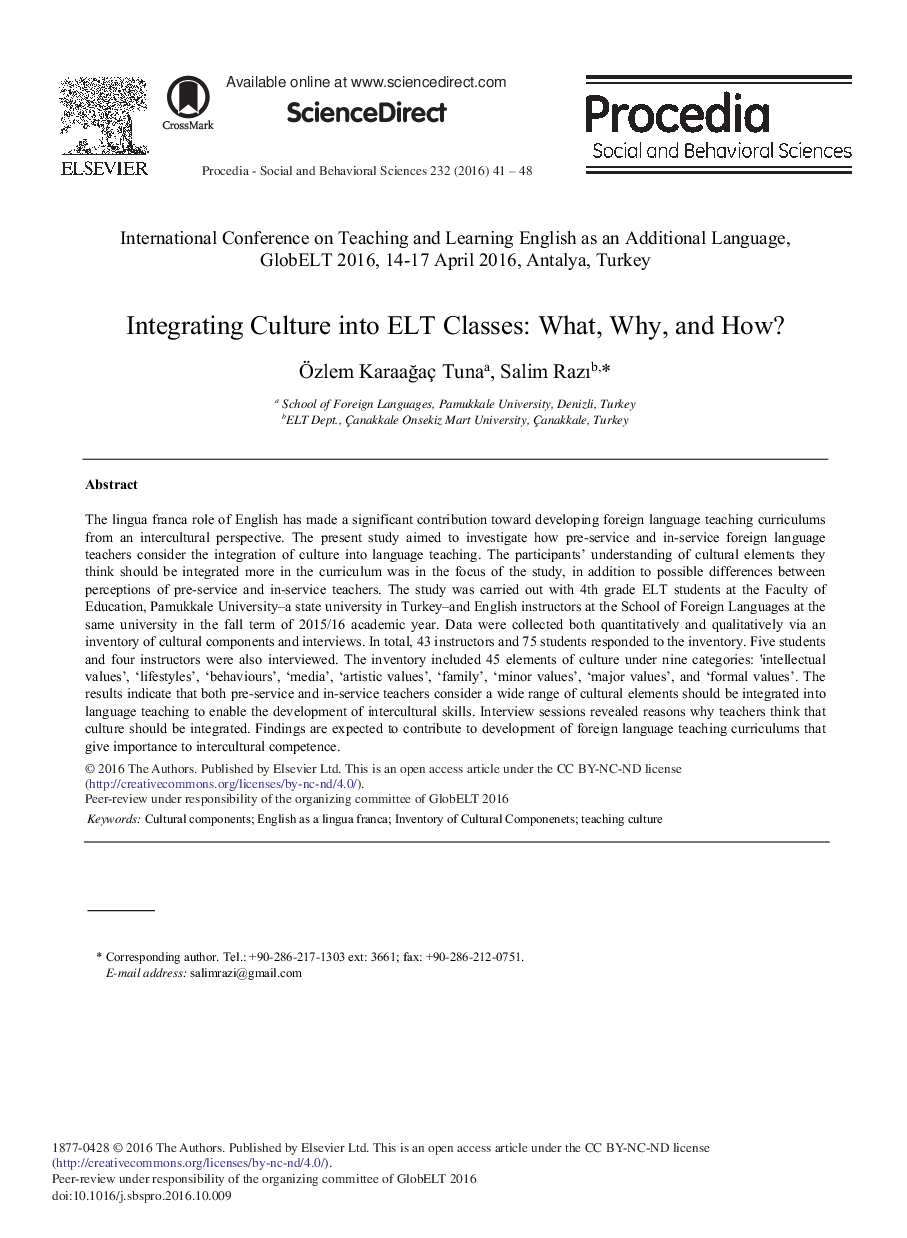| Article ID | Journal | Published Year | Pages | File Type |
|---|---|---|---|---|
| 5125869 | Procedia - Social and Behavioral Sciences | 2016 | 8 Pages |
The lingua franca role of English has made a significant contribution toward developing foreign language teaching curriculums from an intercultural perspective. The present study aimed to investigate how pre-service and in-service foreign language teachers consider the integration of culture into language teaching. The participantsâ¿¿ understanding of cultural elements they think should be integrated more in the curriculum was in the focus of the study, in addition to possible differences between perceptions of pre-service and in-service teachers. The study was carried out with 4th grade ELT students at the Faculty of Education, Pamukkale Universityâ¿¿a state university in Turkeyâ¿¿and English instructors at the School of Foreign Languages at the same university in the fall term of 2015/16 academic year. Data were collected both quantitatively and qualitatively via an inventory of cultural components and interviews. In total, 43 instructors and 75 students responded to the inventory. Five students and four instructors were also interviewed. The inventory included 45 elements of culture under nine categories: â¿¿intellectual valuesâ¿¿, â¿¿lifestylesâ¿¿, â¿¿behavioursâ¿¿, â¿¿mediaâ¿¿, â¿¿artistic valuesâ¿¿, â¿¿familyâ¿¿, â¿¿minor valuesâ¿¿, â¿¿major valuesâ¿¿, and â¿¿formal valuesâ¿¿. The results indicate that both pre-service and in-service teachers consider a wide range of cultural elements should be integrated into language teaching to enable the development of intercultural skills. Interview sessions revealed reasons why teachers think that culture should be integrated. Findings are expected to contribute to development of foreign language teaching curriculums that give importance to intercultural competence.
